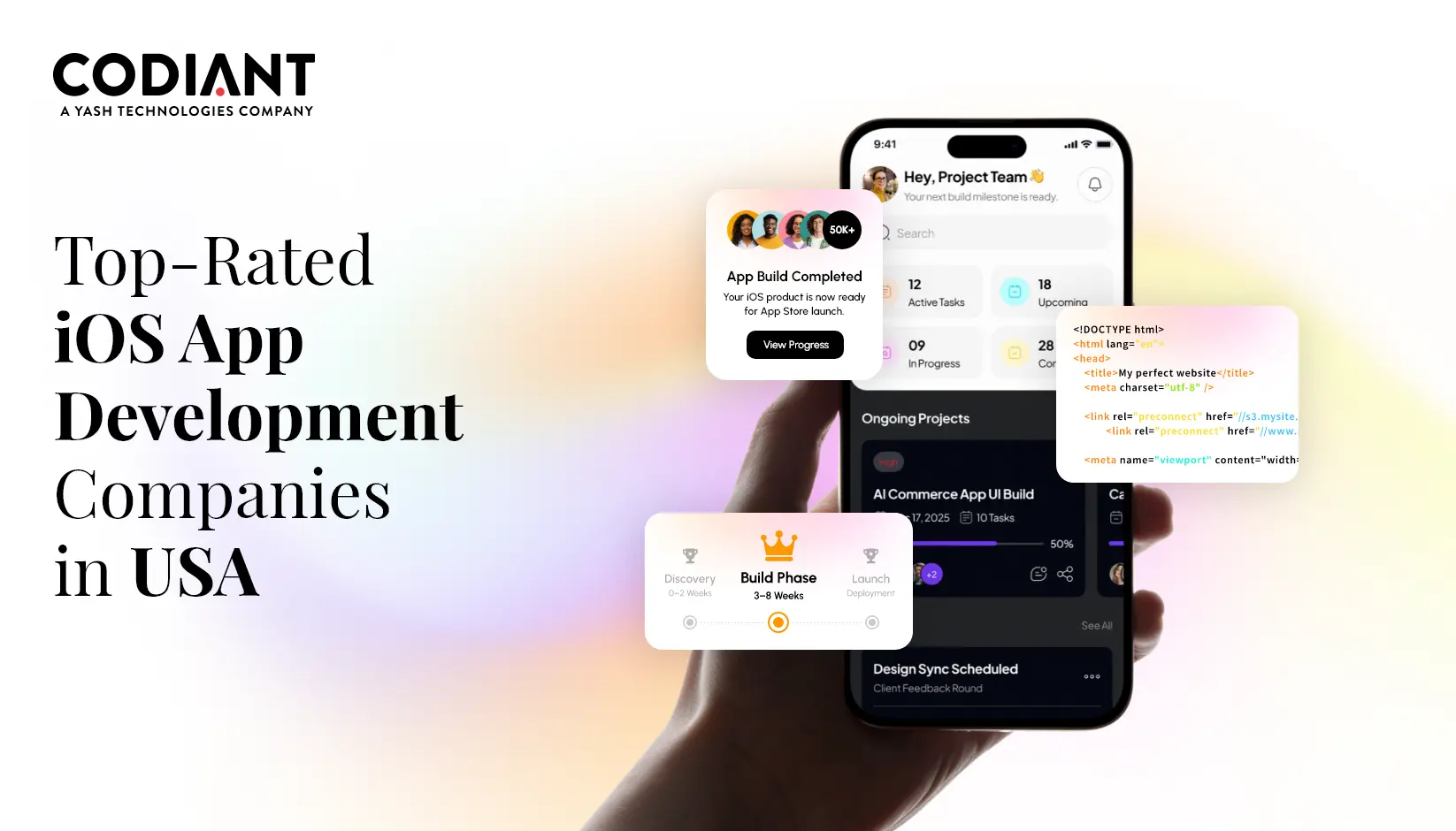Scaling a Start-up: The Right Time to Hire Mobile App Developers
Table of Contents
Subscribe To Our Newsletter

For many start-ups, the journey begins with an idea a small team & a strong desire to solve a real-world problem. But when the business grows the demands of customers & the complexity of operations also grown. At this point, building & maintaining a strong digital presence becomes critical. Among the most effective ways to achieve this is through mobile applications.
Mobile apps are not optional anymore. They play a very significant role in customer engagement operational efficiency & revenue growth. Yet, a common question faced by founders is: When is the right time to hire mobile app developers?
In this blog, we will explore the connection between scaling a start-up & mobile application development & provide practical guidance on when to hire mobile app developers for start-up success. We’ll also share signals, frameworks & strategic insights-written in a simple, consultative style-to help founders make informed decisions.
Why Mobile Apps Matter in Start-up Growth
Mobile is the Default Channel
Today’s customers spend most of their digital time on mobile devices. If your start-up relies on digital interactions, ignoring this medium means missing out on the largest user base.
Mobile Apps Build Stronger Relationships
A website provides information. A mobile app provides engagement. With features like push notifications, personalization & offline access, apps enable deeper & more consistent interaction.
Apps Drive Business Value
From e-commerce to fintech, healthcare to education, mobile apps often become the primary product. Start-ups like Uber, Zomato & Paytm didn’t just build apps-they built their entire business around them.
This makes app development more than just a technology investment. It becomes a growth enabler.
The Risk of Hiring Too Early or Too Late
Hiring too early may drain limited resources. Hiring too late may result in lost opportunities, customer dissatisfaction & slower scaling. The key lies in finding the right time to hire mobile developers-a decision that balances cost, capability & growth.
Signals That It’s Time to Hire Mobile App Developers
Customer Demand Outpaces Current Capability
When users start asking for features like “Can we convert this idea into a mobile app?” or “Do you have a ready made white label app?”-that’s a strong signal. A growing base of mobile-first users often justifies the investment.
Operational Bottlenecks
Manual processes (e.g., order management, booking or support) may slow down as the start-up grows. A mobile app can automate & simplify these workflows.
Competitive Pressure
If competitors offer sleek mobile apps in the market while your business relies only on a website, then there are high chances that you can lose customers. Staying competitive requires catching up-or better yet, staying ahead.
Funding Milestones Achieved
For early-stage start-ups, financial constraints are real. But once you secure seed or Series A funding, allocating resources for mobile application development becomes strategic.
Business Model Depends on Mobile Engagement
Certain models (food delivery, ride-hailing, fintech wallets) are mobile-native by design. If your growth depends heavily on customer interaction, then hiring mobile app developers should happen as early as possible.
Read More: Top Reasons Why Healthcare Providers Need Mobile Apps Today
Framework: Deciding the Right Time
Think of this decision across three dimensions:
1. Stage of Start-up Growth
- Pre-MVP: Focus on validating the idea. Outsource prototypes or use no-code tools.
- Early Scaling: Hire developers to build a robust MVP & refine based on feedback.
- Growth Stage: Expand the team to handle advanced features, integrations & scaling demands.
2. Technology Needs
- Do you need iOS &roid, or cross-platform?
- Do you need AI, analytics, or AR/VR features?
3. Resource Availability
- Funding, revenue, or investor backing decides how much you can invest in long-term talent.
Using this framework helps you decide when to hire mobile app developers for start-up growth without overextending resources.
Options for Start-ups
When the decision is clear, start-ups have multiple paths:
Hire In-House Mobile Developers
Best suited for start-ups with long-term mobile-first strategies. It ensures control, culture fit & commitment.
Outsource to a Mobile App Development Company
Cost-efficient & fast. You get access to experienced mobile app developers without the overhead of full-time hiring.
Hybrid Model
Combine a core in-house team with external experts for specialized skills or temporary needs. This balances speed with flexibility.
Benefits of Hiring Mobile App Developers at the Right Time
- Faster Time-to-Market
Launching earlier means seizing customer attention & securing market share. - Better User Experience
Skilled developers bring design thinking & usability expertise. - Scalability
Properly architected apps can handle thousands-or millions-of users as you grow. - Competitive Differentiation
Innovation in features, design & speed becomes a key market advantage. - Revenue Growth
Mobile apps open channels for subscription, in-app purchases & advertising revenue.
Read more: Cost to Build an AI App Like Perplexity
Common Mistakes Start-ups Make
- Hiring Too Late: By the time you launch, the market may already belong to competitors.
- Overbuilding Too Early: Adding too many features before validating the core value drains time & money.
- Ignoring User Feedback: Developers should build based on real data, not assumptions.
- Underestimating Maintenance: Mobile apps require continuous updates, security patches & optimizations.
Case Studies That Show the Impact
Case 1: Food Delivery Start-up
An early-stage food delivery company noticed that over 70% of its traffic came from mobile browsers. By hiring developers at Series A funding stage, they built a cross-platform app. Result: order volume grew by 120% in six months.
Case 2: EdTech Start-up
An EdTech platform initially offered only web courses. But when student surveys highlighted the demand for mobile learning, they hired mobile app developers. Within a year, their mobile app became the primary revenue channel, accounting for 65% of total enrollments.
Case 3: FinTech Start-up
A digital wallet start-up launched an MVP with outsourced developers. Once Series B funding was secured, they hired an in-house team to ensure security, compliance & scalability.
These examples highlight the power of timing in scaling a start-up solutions through mobile application development.
How to Approach Recruitment in a Strategic Manner
Hiring mobile app developers isn’t just about technology — it’s about timing, business needs & growth speed. Of course you do not need to hire app developers for your startup but, if you need then you can hire them out of these reasons. Think about these points:
Emphasizing Real Value – Ensure your app is solving actual customer problems and simplifying the customer experience.
Purposeful Hiring — Don’t hire developers just because your competitors are doing so. Only when your business is ready to take it to the next level.
Balance Today vs Tomorrow — Design and build functionality that works today but architect the app to be scalable for growth in the future.
Pick the right people – Great developers do more than write code—they help you innovate, improve user experiences, and grow your business. With unlimited design for startups, your product gains the creative edge to scale faster.
Actionable Checklist: Are You Ready to Hire?
- Have you validated your product-market fit?
- Are users explicitly asking for a mobile experience?
- Do you have at least a 6–12-month financial runway?
- Is mobile engagement critical to your model?
- Do you have internal bandwidth to manage a development team?
If most answers are “yes,” it is likely the right time to hire mobile developers.
Read more: How to Hire Mobile App Developers (Android, iOS & Cross Platform)
Looking Ahead: What Startups Should Do Next
The world is becoming more digital every day. People use mobile apps for shopping, learning, travel, money & almost everything else. Startups that understand this early will grow faster than those who wait.
Here are some things to think about:
- Customers want better experiences: People expect apps to be quick, easy & personal. A good app can make them come back again and again.
- Apps help you grow safely: With the right developers, your app can handle more users, keep data safe & give useful insights as you scale.
- Investors notice good apps: Having a strong app shows investors that your startup is ready to grow and compete in the market.
- New technology is coming: Features like AI, voice assistants & AR are becoming common. If you have skilled developers, you can add these without starting over.
Simple lesson: Hiring mobile app developers is not just about building an app. It’s about preparing your startup to grow, stay safe & be ready for the future.
Conclusion
Here’s the truth: scaling a startup isn’t just about having more customers or more revenue – it’s about making smarter moves at the right time. And one of the smartest moves to make ahead with the mobile app development company in USA for your business.
Think about it. Your customers are already living on their phones. If you’re not there, you’re missing out. The right time to hire mobile developers isn’t when your competitors launch their apps. It’s when your users start asking for it, when your operations are slowing you down & when mobile can unlock real growth.
Don’t overcomplicate it. Start small if you have to. Build your MVP, test it, get feedback & then scale. But don’t wait too long either – because in today’s world, speed is everything.
So, if you’re wondering when to hire mobile app developers for startup success, the answer is simple: hire them when customer demand, business growth & financial readiness meet. That’s your green light.
Now it’s your turn. Look at where your startup is today. Ask yourself: are you ready to scale faster, serve better & compete stronger? If yes, it’s time to bring in the right developers and turn your app idea into a growth engine.
Frequently Asked Questions
Startups should not rush into app development at the idea stage. First, validate your concept with real users through a simple website or prototype. Once you see steady demand customer feedback asking for an app or funding that supports growth then it’s time to invest in mobile application development.
For early-stage startups, outsourcing to a mobile app development company is often more cost-effective and faster. In-house teams work best once your business model is authorized & you need long-term control and continuous updates. Many successful startups begin outsourced and later build an internal team.
Delaying too long can result in losing customers to competitors who already offer mobile-first experiences. It can also create operational bottlenecks as manual processes fail to handle growing demand. Timing is key – wait until you’re financially ready but don’t wait until the market has moved past you.
Not every startup needs an app from day one. If your model depends on high-frequency customer interaction – like food delivery fintech wallets or ride-hailing – an app is essential early on. But if your service can be delivered effectively through a web platform initially, you can delay the investment until scaling demands it.
Costs vary based on complexity. A simple MVP app may cost between $20,000 to $50,000, while feature-rich apps can exceed $100,000. Startups should plan not only for development but also for continuous maintenance, updates & scaling. A clear budget and phased rollout strategy help reduce financial strain.
Featured Blogs
Read our thoughts and insights on the latest tech and business trends
Top iPhone App Development Companies in USA in 2026
- February 18, 2026
- Mobile App Development
In a Nutshell The USA remains one of the strongest hubs for premium iPhone app development in 2026, especially for fintech, healthcare, retail, and SaaS brands. Choosing the right iOS partner goes beyond portfolios; the... Read more
How to Choose the Right AI Development Partner in the USA (Enterprise Guide 2026)
- February 12, 2026
- Artificial Intelligence
In a Nutshell Enterprise AI success starts with clear business goals, not vague plans like “we need AI.” The best AI development partners deliver real production systems, not just impressive demos or prototypes. Industry alignment... Read more
How AI Is Transforming Transport & Logistics Operations in Real Time
- February 10, 2026
- Artificial Intelligence Logistics & Transportation
In a Nutshell: AI in transport & logistics is enabling faster, smarter decision-making across fleets, warehouses, and supply chains. Real-time logistics optimization improves route planning, dispatching, and delivery efficiency as conditions change. AI-driven forecasting and... Read more





